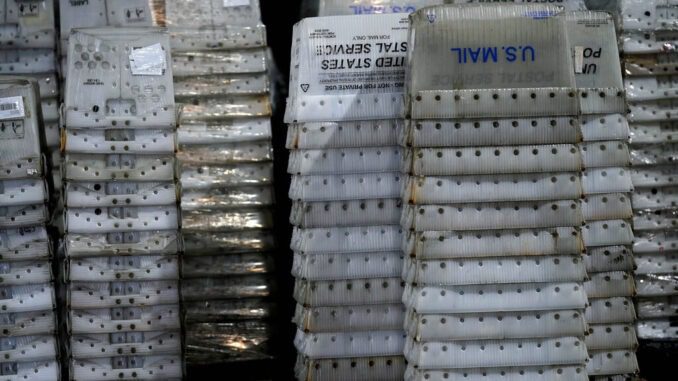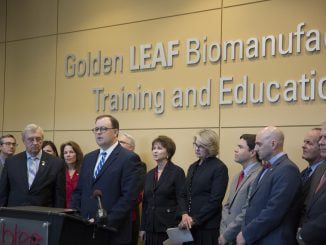
RALEIGH – The N.C. State Board of Elections’ agreement with left-leaning plaintiffs will stand and allow a nine-day period following Nov. 3’s general election for the return of absentee ballots.
“Even with the deadline extension, we encourage voters to return their absentee ballot as soon as possible and ensure it is postmarked,” said Karen Brinson Bell, executive director of the State Board of Elections. “Please make sure your ballot is counted. Return it now.”
The NCSBE also reminded voters that the ballots must be postmarked on or before Election Day.
In a memo released shortly after the ruling, the board outlined the postmark requirements.
“The postmark requirement for ballots received after Election Day is in place to prohibit a voter from learning the outcome of an election and then casting their ballot. However, the USPS does not always affix a postmark to a ballot return envelope,” reads the section.
The NCSBE says its BallotTrax online service and commercial carriers such as DHL, FedEx, and UPS offer tracking services to allow voters and the county boards of election to determine when the ballot was deposited.
“If the container-return envelope arrives in an outer mailing envelope with a tracking number after Election Day, county board staff shall conduct research with the USPS or commercial carrier to determine the date it was in the custody of USPS or the commercial carrier,” the last of the memo reads.
Senate Leader Phil Berger (R-Eden), part of the legislative effort to enforce the three-day requirement, said, “We’re disappointed that the Court majority appears to agree that the legislature’s authority to determine the time, place, and manner of elections is subject to being set aside by a partisan panel of unelected bureaucrats.”
The extension of the deadline to Nov. 12 was part of an effort from left-leaning groups, lead by Washington, D.C. Democratic lawyer Marc Elias. The so-called “Four Pillars” litigation led by Elias and national Democratic groups sued states across the country to force changes in their election laws, including eliminating signature matching and witness requirements, allowing third-party groups to collect and deliver ballots, commonly known as ballot harvesting, and changing postmark and postage definitions.
Elias crowed about the Court’s decision on Twitter, writing Thursday afternoon, “For those seeking comment: No, I am not tired of winning.”
Berger said the argument is a threat both now and to long-term election law.
“Some may say that the policy choice now made by courts and unelected bureaucrats this time is relatively insignificant. Perhaps they’re right. But I’m very concerned about the small, but not zero, chance of protracted, no-holds-barred litigation over dubiously marked, late-arriving ballots that would change the outcome of an election. To change rules mid-election invites suspicion and undermines confidence in election outcomes,” he added.


